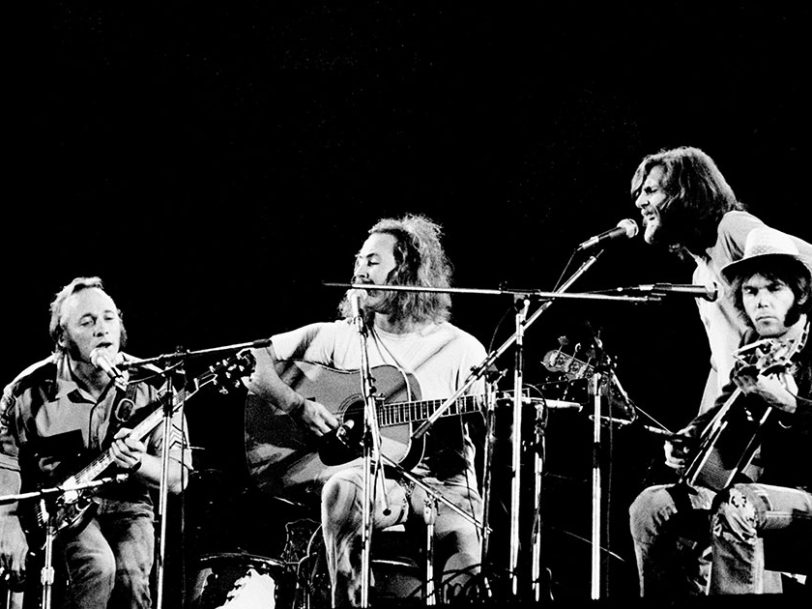As 1970 drew to a close Crosby, Stills, Nash & Young were one of the biggest acts on the planet. Their album of that year, Déjà Vu, was a phenomenon, and it remains the biggest-selling record that each of the four bandmates have been involved in. They followed it up with a 23-date US tour, documented by the hugely successful live double album, 4 Way Street. But despite the critical and commercial adoration, relations were increasingly strained in the CSNY camp and, come 1971, the four members were ready to go their separate ways. Having already started work on the material which would make up for his debut solo album, David Crosby turned to preparing for its release, eventually issuing If I Could Only Remember My Name in the early part of 1971.
The first CSNY member to release a solo album that year, for Byrd David Crosby was the colourful guitarist with a divine tenor voice who brought a sense of anti-establishment mischief to the group. Released on 22 February, If I Could Only Remember My Name was a free-flowing and experimental collection of unhurried jams from an all-star cast, with Crosby’s glorious vocals taking centre-stage. A mood piece that veers between rapture and deep melancholy in an evocative exploration of the possibilities of music, the album was misunderstood at the time, but it is regarded today as Crosby’s masterpiece, and it has been an influence on successive generations of musicians. Yet it was also a record that came from a period of personal tragedy for its creator.
“I just wasn’t equipped. I didn’t have anything”
On 30 September 1969, Crosby’s then girlfriend, Christine Hinton, and her close friend Barbara Langer were driving Hinton’s cats to the vet when one of the cats escaped Langer’s grasp and jumped onto Hinton. Distracted, Hinton crashed her car directly into an oncoming school bus. On hearing the news, Crosby rushed to the hospital, but Hinton had died upon arrival.




